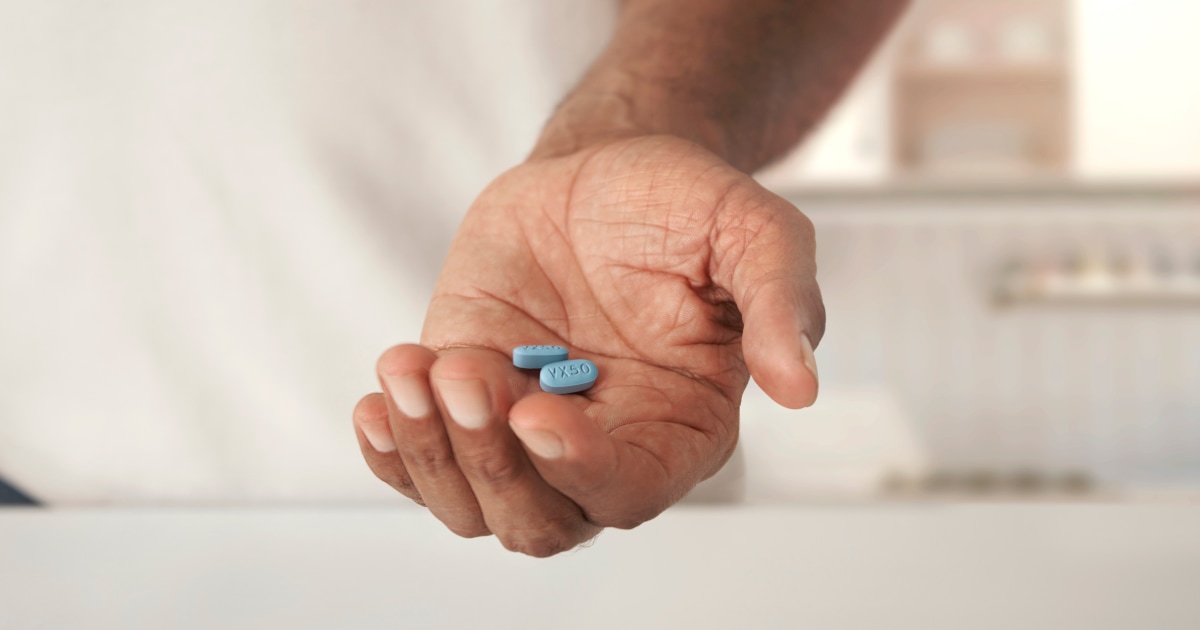This could be very good news. Opioids are very addictive. This is a non-opioid, and apparently it reduces post-surgical pain effectively.

 www.nbcnews.com
www.nbcnews.com
 Vertex Pharmaceutical's new drug Journavx, or suzetrigine, was approved to treat moderate to severe acute pain.Vertex Pharmaceuticals
Vertex Pharmaceutical's new drug Journavx, or suzetrigine, was approved to treat moderate to severe acute pain.Vertex Pharmaceuticals

FDA approves new type of nonopioid painkiller for acute pain
The drug, Journavx, from Vertex Pharmaceuticals, reduced pain after surgery in clinical trials. Experts hope it can lead to fewer opioid prescriptions.
FDA approves new type of nonopioid painkiller for acute pain
The drug, Journavx, from Vertex Pharmaceuticals, reduced pain after surgery in clinical trials. Experts hope it can lead to fewer opioid prescriptions.
Jan. 30, 2025, 5:00 PM CST
The Food and Drug Administration on Thursday approved a new type of nonopioid painkiller from Vertex Pharmaceuticals.
The drug, Journavx, or suzetrigine, was approved to treat moderate to severe acute, or short-term, pain in adults. Experts say the drug, which is billed as nonaddictive, could reduce the number of opioids patients are prescribed after surgery or be used by patients who can’t take other pain medications — though several told NBC News they would like to see more research.
In a statement, Dr. Jacqueline Corrigan-Curay, the acting director of the FDA's Center for Drug Evaluation and Research, called the approval “an important public health milestone in acute pain management.”
Michael Schatman, a clinical instructor in the department of anesthesiology, perioperative care and pain medicine at NYU Grossman School of Medicine, said: “I think in acute pain this drug has great promise. This is something that could be opioid-sparing, and we need more tools in our armory for pain.”
Although the number of patients going home from surgery with opioids has declinedin recent years, many patients still leave the hospital with prescriptions. Despite the risks, opioids are extremely effective at treating pain, which has left doctors and patients with few options when acetaminophen (Tylenol) and nonsteroidal anti-inflammatory drugs, such as ibuprofen, aren’t enough.

“We know from CDC data that anyone who gets exposed to opioids has the potential to have dependence on them,” said Dr. Richard Rosenquist, enterprise chairman in the department of pain management in the Neurological Institute at the Cleveland Clinic.
The body registers pain through nerve endings throughout the body. Touch a hot stove, for example, and the nerve will send signals to the spinal cord and up to the brain that you’re experiencing pain in your hand.
Opioids work by stimulating opioid receptors in the brain, blocking those pain signals. . .
Vertex’s drug works in a completely different way, by blocking the pain signal from traveling to the brain in the first place. The signal is triggered by sodium molecules rushing into the nerve ending, sending the message onward to the brain. . . . STORY CONTINUES AT LINK
